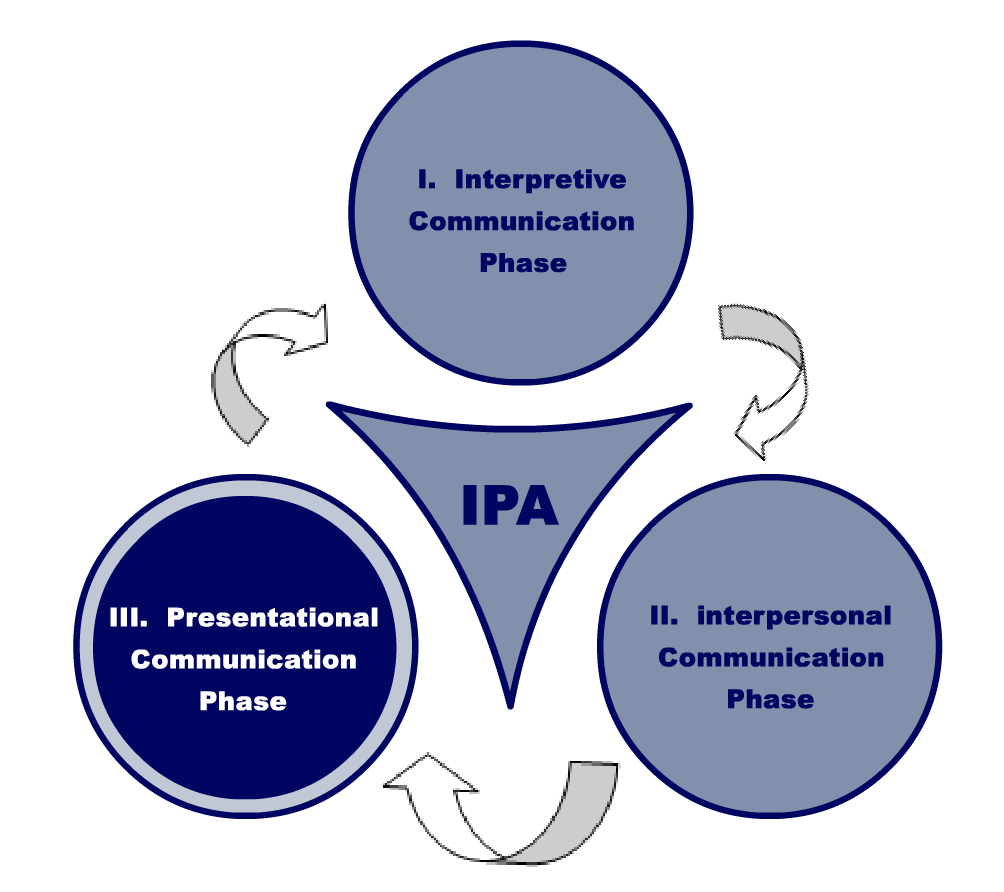 |
|
||||||||||||||||||||||||

|
Example 2: Student Responsibility & Societal Values by Jae Cody Phase 2: Presentational Task Materials needed: Description of the task: Instructions (given orally to students in English):
I would include the timeline with the task; I have had teachers who do not make the time-frame clear (perhaps because they are unsure how long things will take), and then the tasks stretch out over weeks and months and little progress gets made. Since there will be a small number of groups, I want each group to work on a different topic so that they can be performed together. This is why they will have to clear their topics with me. The instructions will be in English to avoid having to spend the entire first day of class going over them. I would consider using German for the timeline, since I would expect my students to be familiar with the vocabulary for different kinds of assignments. For the peer review, I would begin by talking to the students about the audience they will be performing for. They will be told to focus on:
Groups will exchange papers and then take turns giving each other feedback.
They will have a full class session, so there should be time for adequate
discussion. I will circulate during this time to see what kinds of recommendations are being made.
Description of Scoring Rubric: Scoring Rubric for Presentational Task I made the final written text a non-negotiable item because I am more interested in the spoken language in this activity, but I want to make sure that a written product exists. Since the students will have several weeks to work on this and practice, I decided that I should evaluate accuracy on familiar forms in the rubric. “Familiar forms” will include the present tense, correct articles, and the focus forms for this unit, which are modal verbs and dependent clauses. Students will be told in advance, when the rubric is discussed, that these forms will be evaluated for accuracy. Other errors will impact their grade only if they affect comprehensibility. The rubric will be used only to evaluate the performance of the skit. Students will see the rubric in advance. I have two categories (impact and content) that focus mainly on the purpose and genre of the activity and three that focus on the language that is used to present the content. I think that this is a good balance; I do not want students to focus so much on not making mistakes that they neglect the purpose of the activity. I also included using a dependent clause as a non-negotiable. I would assume that a dependent clause would be necessary to present this topic (“we shouldn’t cheat because…”), but I am afraid that students will figure out a way to get around it if I don’t put it on the list.
(use navigation menu below to proceed to the next section)
Navigation: Follow the IPA process or go directly to the section that is of most interest to you by clicking on the appropriate category
|
||||||||||||||||||||||||
